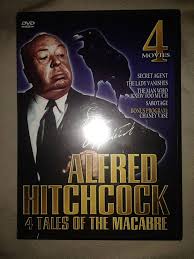The Legacy of Alfred Hitchcock: A Master of Suspense

Introduction
Alfred Hitchcock, often referred to as the ‘Master of Suspense’, is one of the most influential filmmakers in the history of cinema. His innovative narrative techniques and atmospheric style revolutionised the thriller genre, leaving a lasting impact on filmmakers and audiences alike. As we delve into Hitchcock’s achievements and his continuing relevance in today’s film landscape, it becomes clear why his work remains significant.
Early Life and Career
Born on August 13, 1899, in Leytonstone, England, Hitchcock began his career in the film industry in the early 1920s. Initially working as a title card designer in the silent film industry, he transitioned to directing and found success with films like “The Lodger” (1927). His knack for building tension and creating suspense became apparent early on.
Innovative Techniques
Hitchcock’s films are characterised by their intricate plots, psychological complexity, and visual storytelling. He was a pioneer in employing the ‘MacGuffin’—a plot device that primarily serves to drive the narrative forward without being of intrinsic importance. Additionally, his use of montage, subjective camera angles, and innovative sound design have influenced countless filmmakers. Masterpieces such as “Psycho” (1960) and “Vertigo” (1958) showcased his boundary-pushing approach to filmmaking.
Popularity and Recognition
Throughout his career, Hitchcock directed over 50 feature films, many of which have attained iconic status. Films like “Rear Window” (1954) and “North by Northwest” (1959) not only earned critical acclaim but also commercial success. His ability to weave complex characters into thrilling narratives captivated audiences, making him one of the most popular directors of his time. Hitchcock received numerous accolades, including the AFI Life Achievement Award and the Irving G. Thalberg Memorial Award.
Conclusion
Alfred Hitchcock’s influence on the film industry is immeasurable. His unique storytelling techniques and psychological insight into human fear continue to resonate with contemporary filmmakers and writers. As audiences increasingly seek innovative narratives, Hitchcock’s films serve as a blueprint for suspense and psychological thrillers. The ongoing interest in his work, evidenced by remakes and tributes, highlights the timeless nature of his art. As we celebrate Hitchcock’s legacy, we remember him not just as a director but as a masterful storyteller whose work has shaped the landscape of cinema.
